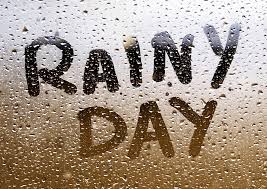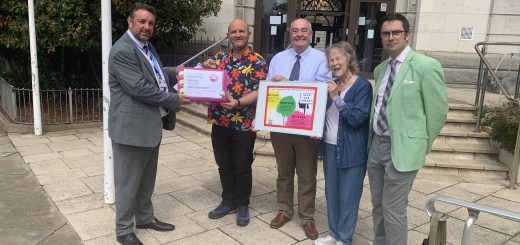Reading in the Rain

Grace Hill Library early history….
A series of blogs written for the Save Our Library campaign by Professor Carolyn Oulton of Canterbury Christchurch University
If you’re finding it hard to think about summer reading after all the rain, spare a thought for Victorian visitors to Folkestone, ‘who hardly know what to do with themselves on a wet day’. One solution was to hit the library, where they could have fun decoding a new catalogue put together with help from the Rev Hall (the same man who had opposed paying for novels out of the rates). His solution to the problem was to have no separate heading for fiction, making it just that bit more difficult for readers to locate it.

Library records show that not everyone was deterred. Some readers continued to take out more novels than they returned: the bestselling East Lynne by sensation author Ellen Wood had to be regularly replaced. A good book helped to pass the time for both visitors and the locals who made a living by entertaining them, with two bathchairmen joining in 1890. The problem for the visitors was that until at least 1893 non-rate payers were not allowed to take books out of the building. The disproportionate number of lodging house keepers taking out membership in any given year may point to a commendable love of literature. But from this distance it looks suspiciously like a side hustle.
Having got a ticket, readers were expected to observe more rules than they were likely to remember. Eyebrow raisers include Rule 3, which stipulated that ‘No person shall be admitted who is in an intoxicated or dirty condition’. While a library might not be the first place generally associated with a wild time, it did at least provide somewhere warm and dry for the less well-off to take shelter in the winter. It was not just the poorest members of the community who found themselves on the wrong side of Victorian attitudes. When the question of Sunday opening came up, one councillor noted that ‘It might or might not be in accord with the wishes of the workers, but no one had troubled to find out’.
The rules could be restrictive for all concerned. Fast readers must have been frustrated that ‘No borrower shall be allowed to have more than one work at the same time’, slower ones that they could not hang on to a newspaper for more than 20 minutes (10 if another reader had requested it).
Some chose to bypass the library provision altogether. One local journalist joked that:
Many a time have I noticed some errand boy in a secluded spot devouring literature of this kind: Jack Sheppard, Sweeney Todd the Demon Barber of Fleet Street, Dick Turpin or the Knight of the Road, &c; and one had the awful title “The Finger of Fate, or the Death’s Head and No Eyes”.
The culture of reading in Victorian seaside resorts had its own rules, which we are only just beginning to research and understand. What we do know is that the Folkestone Free Library, with its hotly debated regulations and diverse users who might not meet anywhere else, played an important part in that story.



